#geoffrey plantagenêt
Text
Capétiens vs Plantagenêts: a matter of suzerainty.
It was also his position as suzerain which gave Louis VII the chance of interfering in and inflaming the quarrels which raged in the Angevin family. This was an effective means of weakening his great antagonist. Henry II and Eleanor produced a large family, and reared four of their sons to the age at which custom demanded that they should be provided for. Their eldest son Henry was granted Normandy in October 1160 and was associated with his father on the throne of England in 1170. Richard was given Aquitaine in 1169 and Geoffrey Brittany in 1175. John, the youngest child of Henry and Eleanor, was not old enough to be entrusted with any estates until the very last years of his father's reign, and by the time he came of age all the available lands had been given away. As Duke of Normandy, Duke of Aquitaine, Count of Poitiers, the sons of Henry II came to perform homage to the King of France and became his men. It was in vain that Henry II sought to utilise the Norman procedure of pariage to maintain the unity of his continental territories in favour of his eldest son, the "Young King" Henry. (Under pariage the eldest son succeeded to all the heritable property and was alone answerable for it to the suzerain; each of his brothers received a share, but held it of him). This device could not be put into full operation in Aquitaine, which was not part of Henry's heritage but Eleanor's. And when she granted it to Richard, he owed homage not to his father or his eldest brother, but to the King of France. The Young King Henry had done homage as Duke of Normandy to Louis VII in October 1160. When he repeated his homage in 1170 it was made to embrace Anjou, Maine, and Brittany as well. At the same time Richard did homage to Louis for Aquitaine.
It is true that in 1174 Henry II compelled his sons to perform homage to him after their rebellion, but this new homage did not necessarily annul their homages to the King of France. Henry II himself had done homage to Louis VII in 1151 and again in 1169, and was to perform it yet again to Louis's successor, Philip Augustus, in 1180. Thus throughout the conflict between Louis VII and Henry II the French king's suzerainty was affirmed and recognised. This did not save Louis from defeats at his vassal's hands. Nevertheless, to judge from the Toulouse affair in 1159, Louis' suzerainty occasionally cramped Henry's style, and put him in the wrong in the eyes of contemporaries, including the barons of his continental fiefs. To play the rebel vassal was hardly prudent for a king when many of his own vassals were rebelliously inclined. It was not that the idea of rebellion itself shocked feudal society. On the contrary, it was one of the legitimate courses open to a vassal needing to safeguard his rights against the encroachments of his suzerain. But in the disputes between Louis VII and Henry II, Henry was the law-breaker as well as the vassal in revolt. For his rebelliousness against an impeccable suzerain there could be no justification.
It may be objected that Louis VII was constantly intriguing with Eleanor of Aquitaine and with Henry II's sons. But after all Eleanor, as Duchess of Aquitaine, was herself a royal vassal. Two of Henry's sons had done homage to Louis. Another, Geoffrey, by dint of his father's vassalage, was the French king's rear-vassal. And the king had, as suzerain, not merely the right but the duty to concern himself with the welfare and harmony of his great vassal's family, to ensure that a proper settlement was made on the sons. It would be unfair to accuse Louis of hypocrisy; nor did Henry ever complain that the French king was making trouble in his family. Louis' own grievances against Henry were many and varied, and Henry never made a serious effort to deny their validity.
Thus from 1154 to 1180 Henry II had the appearance of a vassal engaged in unjustifiable revolt against his suzerain. This line of conduct undermined his own position. It constantly reminded the baronage of the Angevin fiefs that the King of France was Henry's suzerain- if only because his suzerainty was so often invoked. And it helped to prevent the fusion of the individual elements of the Angevin empire on the continent. Provincial separation, already too strong for Angevin rule to subdue, was reinforced.
Robert Fawtier- The Capetian Kings of France
#xii#robert fawtier#the capetian kings of france#louis vii#henry ii of england#aliénor d'aquitaine#henry the young king#richard the lionheart#geoffrey plantagenêt#john lackland#jean sans terre
7 notes
·
View notes
Photo
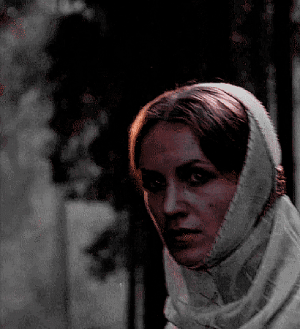
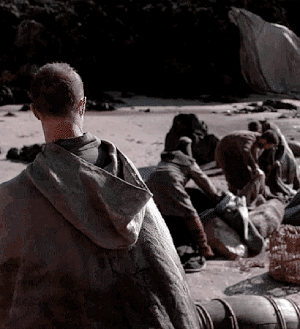


The Duchess therefore ruled Brittany, with or without a husband, from 1181 to 1201. An episode of her reign illustrates well the way in which the Duke of Brittany cooperated with the Plantagenet regime for maritime issues. It is delivered to us by a letter from the Duchess Constance addressed to Pierre Bertin, Senechal of Poitou, from around 1190. It mentions the outcome of a dispute caused by a shipwreck at Belle-Île. The Abbot of Sainte-Croix de Quimperlé contested the Right of the Wreck to a certain Geoffroi of Le Mans, "de Cenoman”, and to his associates- merchants from La Rochelle, it seems. Belle-Île being under the jurisdiction of the continental lands of Brittany, the Duchess Constance delegated the care of settling the dispute to her Senechal du Broërec. The latter ruled that the abbot had only the Right of the Wreck, by endowment from the duke, which had to be perfectly attested, thanks to the procedures and acts exchanged by the abbeys of Quimperlé and Redon earlier in the century. But Geoffrey of Le Mans did not bow to this judgment. Leaving aside the legal acts in question, Constance orders Pierre Bertin, in this letter, not to take any action against his men or those of the abbot, as she strives to satisfy both parties. How could the Duchess give orders to the Senechal de Poitou in this way? By what authority? It remains unclear. The compelling language Constance uses in this letter may be thought to be essentially emphatic and aimed at enhancing her personal prestige. But this document illustrates very well a crucial point: the importance of harmonious cooperation in this region. The Duchess of Brittany and the Senechal du Poitou, who in fact assumed the functions of viceroy, in the absence of Richard I, are proof that they could coordinate their exchanges with the merchants, to spare a solution that was unfair or arbitrary to those involved in maritime trade.
-Judith Everard, Le duché de Bretagne et la politique Plantagenêt aux XIIe et XIIIe siècles : perspective maritime
98 notes
·
View notes
Photo
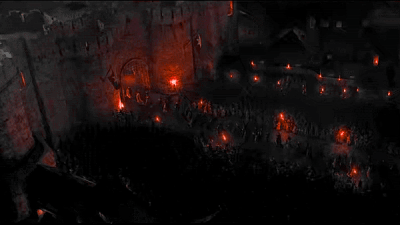

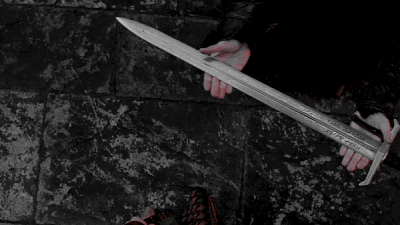
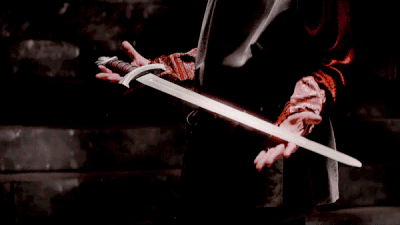


Young Geoffrey is the first to be inducted into his new state. Barely ten years old, his father took him to Rennes where all his predecessors had been crowned. In order to be allowed to enter the city, the child must, according to the ancient custom, stop for a moment in front of the heavy closed doors of the Mordelaise Gate and pronounce, in the form of an oath, on the Holy Gospels, a kind of “Open Sesame”
“I swear to defend the Catholic faith and the freedoms of the Church, not to allow the royal rights of Brittany to be violated, to maintain the franchises and prerogatives of the nobility and to be fair to the people.”
The door opens, the little duke with a step full of dignity walks towards the chapel where he will spend the night in prayer. The next day, he received from the hands of the bishop of Rennes the closed crown, circled in gold, of the sovereigns of Brittany and the naked sword, symbol of power.
“I give you this sword in the name of God and our Holy Father as a sign of high and noble lordship. God grant that you use it in such a way as to ensure the salvation of the souls of you and of your people. Amen.”
The coronation went off without incident. The barons present promised fidelity, perhaps with lip service, but without complaint. It now remains to pay homage to the duchy to its sovereign lord. This will be one of the items on the agenda of a new so-called peace conference meeting in Montmirail on Kings Day.
-Jaques Choffel, La Bretagne Sous l’Orage Plantagenêt
45 notes
·
View notes